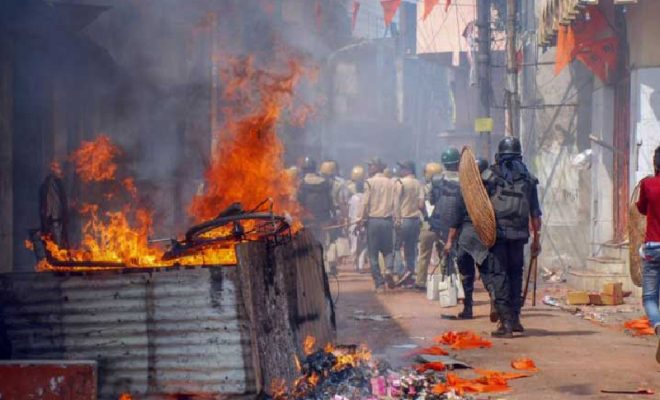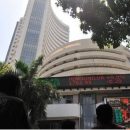Ram Navami violence in West Bengal sparks political blame game

The later Ram Navami celebrations in West Bengal’s Murshidabad locale have blended contention and charges of viciousness, with political figures exchanging allegations and requests for examinations. At the heart of the issue are claims by West Bengal Chief Minister Mamata Banerjee, restriction pioneer Suvendu Adhikari, and BJP authorities with respect to the instigator and dealing with the clashes.
Mamata Banerjee’s Affirmations
Mamata Banerjee, known for her vocal position against the BJP, took center organize by charging that the Bharatiya Janata Party had coordinated savagery amid the Ram Navami celebrations in Murshidabad. She attested that the savagery was not unconstrained but pre-planned, indicating to the evacuation of a police officer from Murshidabad fair some time recently the clashes ejected. Banerjee’s claims recommended a calculated exertion by the BJP to disturb peace and soundness within the locale for political picks.
In a searing discourse at an election rally in the Raiganj Lok Sabha constituency, Banerjee denounced the BJP of coordinating the savagery, claiming that everything had been fastidiously arranged. She affirmed that a police officer’s expulsion was coordinated to clear the way for the BJP to carry out their rough plan without prevention. Banerjee’s explanations not only highlighted the unstable nature of political pressures in West Bengal but also raised questions about the unbiasedness of law authorization offices in the state.
Opposition’s Reaction
Suvendu Adhikari, the Leader of Opposition in West Bengal, countered Banerjee’s claims, setting the fault decisively on her shoulders. Adhikari blamed Banerjee of conveying a provocative discourse that fueled the viciousness amid the Ram Navami celebration in Murshidabad. He requested a careful examination by the National Investigation Agency (NIA) into the occurrence, proposing that Banerjee’s fiery talk had acted as rapscallions to disturb the peace.
Adhikari’s reaction reflected the deep-rooted enmity between the administering Trinamool Congress (TMC) and the opposition BJP in West Bengal. The clash over the Ram Navami viciousness served as another battleground for their ongoing political contention, with both sides competing for public support and sensitivity.
BJP’s Perspective
The Bharatiya Janata Party (BJP) did not stay quiet in the face of these allegations. Bengal BJP Chief Sukanta Mazumdar passionately denied Banerjee’s claims and instead pointed fingers at the Trinamool Congress (TMC). Mazumdar charged that it was TMC specialists who assaulted the quiet Ram Navami celebration in Murshidabad, as part of a bigger procedure coordinated by Mamata Banerjee to solidify minority votes.
Mazumdar’s declaration underscored the BJP’s narrative of depicting itself as a casualty of political viciousness organized by the administering TMC in West Bengal. The BJP has long blamed the TMC of turning to terrorizing and viciousness to smother its political rivals, advancing the crack between the two parties.
Also Read | Congress-SP alliance targets Ghaziabad victory amidst Uttar Pradesh electoral fervor
Questionable Comments
Including fuel to the fire were Mamata Banerjee’s questionable comments, almost April 17 being BJP’s “day of revolt.” These comments, made at a rally, were seized upon by BJP pioneers as proof of Banerjee’s affirmed part in actuating viciousness and polarizing communities for political pick up. The comments advance heightened pressures between the TMC and the BJP, with both sides exchanging barbs and allegations in the public space.
The discussion encompassing the Ram Navami viciousness in Murshidabad highlighted the volatile nature of legislative issues in West Bengal, where clashes between equal parties are not exceptional. The charges and counter-allegations underscored the deep-seated doubt and hostility between the TMC and the BJP, setting the organizer for a fierce political fight in the run-up to the elections.
The Ram Navami savagery in West Bengal’s Murshidabad area served as a horrid update of the political pressures and polarizations plaguing the state. The charges and allegations leveled by different political figures only served to extend the isolated advance, complicating the current complex political scene of West Bengal. As the state gears up for elections, it remains to be seen how these occasions will shape the political story and impact voter assumptions in the days to come.



